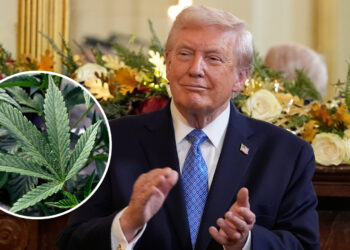Missouri voters have decided in favor of a ballot initiative (Amendment 3) legalizing the possession, cultivation, and licensed retail sale of cannabis for those ages 21 and older. The vote marks the first time that voters in a mid-western state have ever decided in favor of a citizens’ initiative legalizing marijuana for adult use.
“Missourians have clearly demonstrated that support for ending prohibition isn’t relegated to the coasts or deep blue states, but that it is a common sense position that resonates with all Americans,” stated NORML Executive Director Erik Altieri, “With the approval of Amendment 3, Missouri voters rejected the failed ideas of the past and elected to chart a new path oriented on justice and sound public policy.”
The measure allows adults to possess up to three ounces of cannabis and to home-cultivate up to six flowering plants, six immature plants, and six plants under 14 inches for their own personal use. It also establishes a program to automatically review and expunge criminal records for eligible non-violent marijuana-related marijuana offenses. The measure seeks to broaden participation in the licensed cannabis marketplace by including small business owners and those representing disadvantaged populations, including those with limited capital, residents of high-poverty communities, service-disabled veterans, and those who have been previously convicted of nonviolent marijuana offenses. Additionally, the initiative makes some improvements to the state’s existing medical marijuana access program.
“This is truly a historic occasion,” said Dan Viets, co-author of Amendment 3, Missouri NORML Coordinator and Chair of the Amendment 3 Advisory Board. “This means that the great majority of the 20,000 people who have been arrested year after year in Missouri will no longer be subject to criminal prosecution for victimless marijuana law violations.”
Campaign proponents had to fend off various frivolous, last minute legal challenges from opponents who sought to have the measure removed from the ballot because of alleged technicalities. In recent years, legalization opponents have frequently turned to legal challenges in their efforts to either overturn election results or to prevent voters from deciding on marijuana legalization questions.












